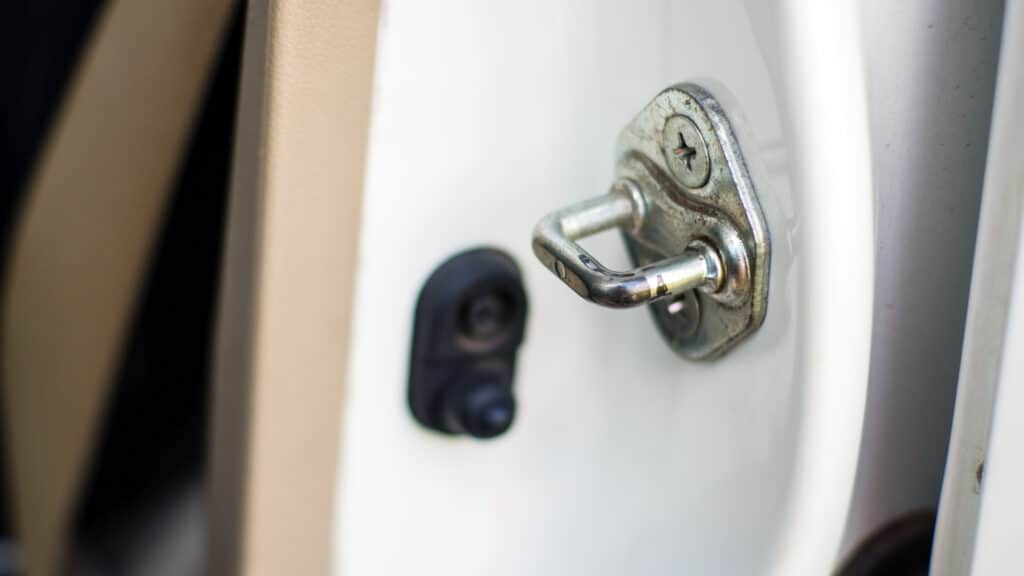Chevrolet Lemon Law: What You Need To Know
Few things are more frustrating than buying a new vehicle that keeps breaking down. If your Chevy has repeated issues, California’s lemon law may entitle you to a refund, replacement, or cash settlement.
Our Chevrolet lemon law team is here to walk you through the process and pursue fair compensation at no cost to you. We’re ready to roll up our sleeves and do the work while you focus on moving forward.
Home » Manufacturers » Chevrolet Lemon Law: What You Need to Know
Why Work With Lemon Law Help for Your Chevrolet Lemon Law Claim?
Other lemon law firms often stop once they secure a basic refund or replacement. We take a different approach. Our team fights for every remedy the law allows, including civil penalties that can double your compensation.
Here’s what else you gain when you work with us:
- Extensive California lemon law experience: We’ve been serving California car owners and lessees since 2006, helping over 10,000 clients across the state pursue claims against major automakers.
- Proven results in Chevrolet cases: Our attorneys have secured numerous six-figure case results against General Motors for defective Chevy vehicles.
- Trial-tested advocacy: We’ve taken more lemon law cases to trial than any other California law firm and have successfully appealed cases before the state Supreme Court.
- Client-focused service: We put our clients’ needs first, providing clear communication and personal attention from start to finish.
- No cost to you: General Motors must cover your attorney’s fees if you win, so you’ll never pay out of pocket for our services.
Started working with knight law and their team and let me just say these guys and gals know their stuff. Not only are they extremely professional but very helpful in making the lemon process simple and straight forward. 10 out of 5 stars for Chris and his team. Because of them the manufacturer bought back my vehicle with no head ache or term oil. Thanks again knight law!
Jesse Guidera
We just settled our second lemon law case with Knight. I think the best employee they have based on energy, respect for the client and all around positive attitude is Jonathan Rivera Cruz. He just put me at ease every time I called!!!
Thanks
Tim Coggins
Amazing fast service yes it did almost take 18+ months for my settlement these guys are the best . Fast encouraging they keep up with your case Nissan is the worst car manufacturer ever
Ivan Radziak
Top 8 Chevrolet Lemon Issues
Chevrolet produces several models, including the Chevy Silverado, Chevy Camaro, Chevy Malibu, Chevy Traverse, and Chevy Bolt EV. Chevrolet owners and lessees should look out for the following signs:
- The “Chevy Shake”
- Excessive oil consumption
- Sudden jerking or hesitation while driving
- Transmission failure or rough gear engagement
- Illuminated check engine light
- Hard or erratic shifting between gears
- Fluid leaks (motor oil, steering fluid, coolant, or transmission fluid)
- Unexpected or sudden deceleration
If these symptoms or other vehicle problems repeatedly appear, your Chevrolet may be a lemon. Several lemon law claims and class action cases were filed against Chevrolet for these issues. If your Chevy has shown these issues and your dealership or auto repair shop couldn’t fix them, consult a California Chevrolet lemon law attorney to discuss legal remedies from your auto manufacturer.
Chevrolet
Riverside, CA
Chevrolet
San Jose, CA
Chevrolet
Clovis, CA
How the California Lemon Law Protects Chevrolet Owners
California’s lemon law applies to Chevrolet vehicles that are still covered under the manufacturer’s warranty. The law may treat your vehicle as a lemon if it has a defect that substantially impairs its use, safety, or value, and the problem continues after a reasonable number of repair attempts.
The law includes what’s known as the lemon law presumption. If your Chevy has repeated problems in the first 18 months or 18,000 miles—such as two failed safety repairs, four failed repairs attempts for another warranty-covered issue, or over 30 days in the shop—the manufacturer has the burden of proving your car isn’t defective. Otherwise, it owes you a fair resolution.
While the law gives you many rights, you also have some responsibilities as a consumer. California’s AB 1755 requires you to give the manufacturer a written notice at least 30 days before filing a lawsuit for civil penalties. General Motors must acknowledge your request and either offer a buyback or replacement within 30 days, then complete it within 60 days. If it fails to comply, you may proceed with a lawsuit and seek additional penalties.
How Do I Know if My Chevy Qualifies as a Lemon?
If your Chevy keeps having the same problems no matter how many times you bring it in for repairs, it may legally be considered a lemon. California’s lemon law presumption makes it easier for consumers to prove their case when certain repair patterns appear early on. You may qualify if any of the following happen within the first 18 months or 18,000 miles:
- Serious safety defects covered under the manufacturer’s warranty remain after two repair attempts.
- Other warranty-covered defects remain after four repair attempts.
- The vehicle has been out of service for 30 or more non-consecutive days due to warranty-covered repairs.
You don’t necessarily have to meet these criteria to have a valid claim. However, doing so shifts the burden to the manufacturer to prove your vehicle isn’t defective. This presumption can strengthen your case, speed up the process, and improve your chances of receiving a favorable settlement. If you’re unsure whether you qualify, contact our Chevrolet lemon law lawyers for a personalized case evaluation.
What To Do if Your Chevrolet Has Defects
If your Chevy vehicle continues to have problems, these actions can help you build a solid lemon law claim:
- Report defects promptly: Take your vehicle to a manufacturer-authorized repair shop as soon as an issue arises. If the repairs fail, keep returning to the shop until you’ve reached the minimum number of repair attempts under California law.
- Document repair attempts: Save all work orders and service reports showing what was done at each visit.
- Save receipts and invoices: Keep records of every expense tied to the defect, including rental car and towing costs.
- Keep a log of repair days: Track every day your vehicle is in the shop, even if they don’t occur back-to-back.
- Contact a Chevy lemon law attorney early: Our lawyers can explain your rights, monitor repair attempts, and be ready to take action once you meet the legal threshold.
What Compensation Can I Receive for My Chevrolet Lemon?
You may pursue one of the following forms of relief if your Chevrolet meets California’s criteria for a lemon:
- Buyback or refund: The manufacturer may repurchase the car and return the amount you paid, minus a deduction for mileage. The mileage offset is based on how much you drove the vehicle before the defect started causing problems, which may slightly reduce your refund.
- Replacement vehicle: You may return the defective vehicle to the manufacturer and receive a new, comparable vehicle.
- Cash settlement: You may keep the vehicle and receive a negotiated cash payment from the manufacturer.
Additionally, your compensation may include reimbursement for expenses you incurred due to the defect, such as rental car costs and towing fees. You may also be entitled to civil penalties, which can increase your total compensation to two or three times the vehicle’s purchase price. Our team pushes for the maximum relief available under the law—not just the base refund manufacturers prefer to offer.
We Can Help You Obtain a Chevrolet Lemon Law Buyback
If your Chevy is found to be a lemon, you may be eligible for one of several forms of relief, including a buyback, a replacement, or a cash settlement. You may also be eligible for additional damages, which could raise your total recovery to several times the vehicle’s purchase price.
Lemon Law Help is here to put this law to work for you and pursue the financial relief you deserve. Call us toll-free at 833 -208-8181 or complete our online contact form to schedule your free consultation and find out if your Chevrolet qualifies as a lemon.
Do You Have A Lemon Vehicle?
"*" indicates required fields





